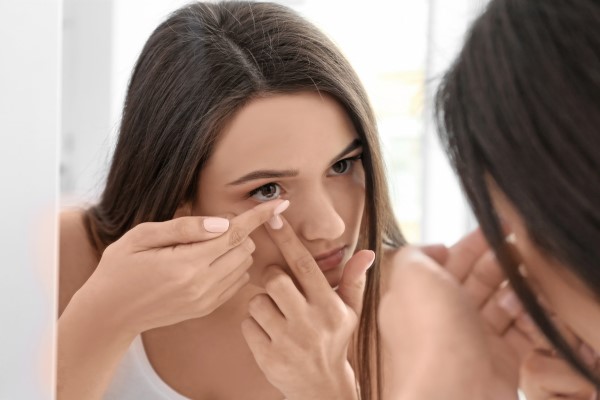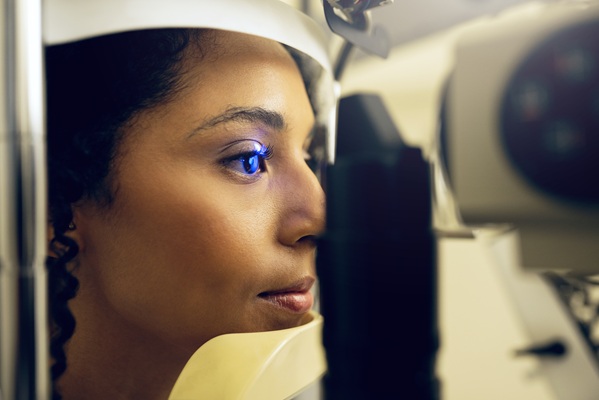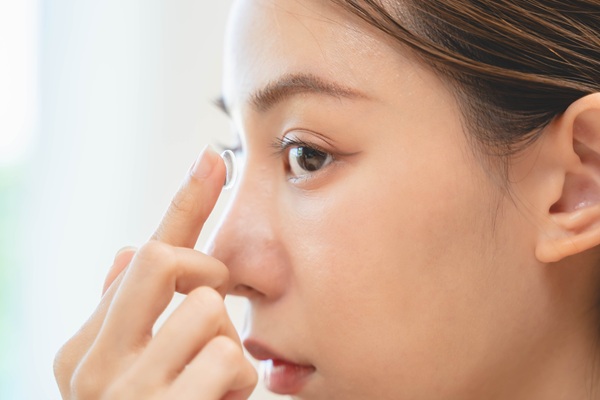Should a Person Wear Their Contacts for an Appointment With an Optometrist?

If you have eye problems, your optometrist is an important health care provider. If you have not yet made an appointment to visit with this doctor, now is the time to do so. Before you go, it is helpful to know what this person will do for you. You should also know what you can do to make your appointment more successful.
When to go
Regardless of a person’s age, it is important to have an annual checkup at the primary care physician’s office. During this visit, the doctor will conduct a physical, including an eye examination. If the doctor is concerned about the person’s vision or any eye abnormalities, they may refer the patient to an optometrist. The patient can also see this professional if they are experiencing blurry vision, double vision or loss of vision in any way. People should not put off a visit, especially if the issues are impairing the individual’s day-to-day life.
What the optometrist does
Though not a medical doctor, this person does hold a doctorate and has years of training. The optometrist will test the person’s vision through a thorough eye exam. The professional can diagnose and treat various eye conditions and can prescribe medication as well. The optometrist may recommend corrective lenses. This person may even refer the patient to an ophthalmologist if surgery is required.
Wearing contacts to the appointment
Patients often want to know if it is a good idea to wear contact lenses or glasses to an appointment with the optometrist. These will not get in the way or hinder the examination. In fact, most doctors prefer that patients come with these lenses. This will help the doctor make proper adjustments to the patient’s vision. The person should remove the lenses during the exam, but the doctor will want to test the individual’s vision with the contacts in.
Checkup frequency
Every patient has different needs. In general, people should have an eye exam every two years. Patients who currently have glasses or contact lenses may need to come into the office more frequently such as once a year. The optometrist may have the person on a treatment plan where there is a monthly or bimonthly follow-up.
When to start coming
Parents should bring children to the eye doctor for their first eye exam at about 6 months of age. By age 3, the child’s second exam should occur. A third exam around age 5 or 6 can start to confirm whether the child will need glasses or contact lenses.
Important care for all ages
You may currently have glasses or contacts, or you may have no vision issues. In either case, it is important to see the optometrist regularly. If you wear contacts, remember to take them with you to your appointment so the doctor can get an accurate test of your vision. Call your eye doctor today if it is time for your next exam. If you have not been for a couple of years, make sure you come by for a visit.
Get more information about Texas Optical in Dallas at https://www.texasoptical.net.
Check out what others are saying about our services on Yelp: Read our Yelp reviews.
Recent Posts
For those living with diabetes, undergoing a diabetic eye exam is one of the most important steps in protecting their vision and overall eye health. High blood sugar levels can lead to a range of complications, including conditions that damage the eyes over time. These exams help detect these issues before they become serious, allowing…
Contact lenses provide clear vision and convenience for individuals who prefer an alternative to eyeglasses. However, proper care and maintenance are essential to prevent infections, irritation, and eye damage. Neglecting hygiene practices can lead to serious eye conditions, including corneal ulcers and keratitis. Understanding how to clean, store, and handle contact lenses ensures long-term eye…
Maintaining eye health and preventing long-term issues is the result of consistent and quality vision care. Many people focus on overall wellness but may overlook daily habits that support healthy eyesight. However, taking simple steps each day can protect vision, reduce eye strain, and prevent future complications. By making eye health a priority, it is…
Prescription contacts provide vision correction, comfort, and convenience for those who do not want to wear glasses. However, caring for and wearing contacts takes some getting used to. Learning to insert, remove, and maintain them will help ensure a comfortable and safe experience.Not all contact lenses are the same, and choosing the right pair is…


